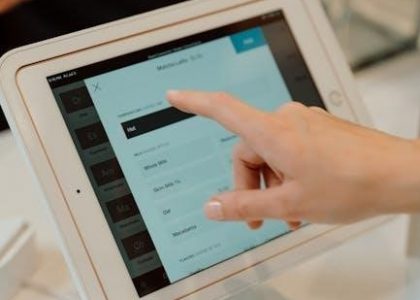The CBT Numeracy Practice Test PDF is a valuable resource designed to help individuals prepare for CBT exams, focusing on numerical reasoning and problem-solving skills.
What is a CBT Numeracy Practice Test?
A CBT Numeracy Practice Test is a simulated assessment designed to evaluate and enhance numerical reasoning skills in a computer-based format. It mirrors the actual exam structure, featuring multiple-choice questions that test problem-solving abilities, data interpretation, and mathematical accuracy. These practice tests are essential for identifying weaknesses and improving readiness for professional licensing exams, such as those required for nursing or allied health professions. By replicating the exam format, candidates can familiarize themselves with question types, time constraints, and cognitive challenges, ultimately building confidence and competence in numerical problem-solving scenarios.
Why is Numeracy Important in CBT Exams?
Numeracy is a cornerstone of CBT exams, as it assesses the ability to process and interpret numerical data accurately. In professions like nursing, where medication administration and patient care rely heavily on precise calculations, strong numerical skills are critical. CBT exams use numeracy tests to ensure candidates can apply mathematical concepts to real-world scenarios, such as calculating dosages, interpreting test results, or managing budgets. Proficiency in numeracy not only enhances professional competence but also patient safety and overall job performance. Thus, mastering numeracy is essential for success in both the exam and the workplace.
Understanding the Format of CBT Numeracy Tests
The CBT Numeracy Test typically includes multiple-choice questions, numerical reasoning problems, and time-limited exercises. It simulates real exam conditions, helping candidates familiarize themselves with the format and improve readiness.
Types of Questions in Numeracy CBT Tests
Numeracy CBT tests often include multiple-choice questions, numerical reasoning problems, and time-limited exercises. Questions may involve basic arithmetic, data interpretation, and problem-solving scenarios. Some tests feature adaptive difficulty, adjusting based on performance. Practice tests help candidates understand the question format, identify weaknesses, and improve readiness for the actual exam. Familiarizing oneself with these question types is crucial for building confidence and achieving success in the CBT numeracy test.
Time Management Strategies for CBT Tests
Effective time management is crucial for success in CBT numeracy tests. Candidates should allocate time evenly to each question, avoiding spending too long on a single problem. Practicing with timed exercises helps build speed and accuracy. Prioritizing easier questions first ensures securing initial points before tackling more complex ones. Taking short breaks during practice sessions can maintain focus and reduce fatigue. Using practice tests to simulate real exam conditions is highly recommended. Additionally, staying calm and systematically approaching each question minimizes errors. Mastering these strategies enhances overall performance and confidence in the test environment.

Cognitive Distortions and Their Impact on Numeracy Tests
Cognitive distortions, such as catastrophizing or overgeneralizing, can impair problem-solving skills and lead to errors in numeracy tests. Recognizing these biases is key to improving accuracy and performance.
Common Cognitive Distortions in Numeracy Problems
Cognitive distortions, such as catastrophizing and overgeneralization, often interfere with numerical reasoning. These distortions involve irrational thought patterns that lead to misinterpretation of data or miscalculations. For example, confirmation bias can cause individuals to focus only on numbers that support their preconceived notions, ignoring contradictory evidence. Additionally, all-or-nothing thinking may lead to oversimplification of complex problems, resulting in errors. Recognizing these distortions is crucial, as they can significantly impair problem-solving abilities and test performance. By addressing these biases, individuals can enhance their analytical skills and approach numeracy challenges more effectively.
How Cognitive Behavioral Techniques Can Improve Test Performance
Cognitive Behavioral Techniques (CBT) are effective in enhancing test performance by addressing cognitive distortions and promoting rational thinking. For instance, cognitive restructuring helps individuals challenge and modify irrational beliefs that may hinder problem-solving. Techniques like mindfulness and relaxation exercises reduce test anxiety, allowing individuals to focus better. Additionally, CBT encourages the development of problem-solving skills and thoughtful planning, which are essential for tackling numeracy problems systematically. By applying these strategies, individuals can approach tests with increased confidence and accuracy, ultimately improving their overall performance in CBT numeracy exams and other similar assessments.
Preparing for the CBT Numeracy Practice Test
Preparing for the CBT Numeracy Practice Test involves regular study and practice. Utilize PDF guides to identify weaknesses and improve problem-solving skills, ensuring confidence and readiness for the exam.
Effective Study Tips for Numeracy CBT Tests
To excel in CBT Numeracy Tests, adopt a structured study approach. Start by identifying your weak areas using practice test PDFs and focus on improving them. Dedicate time to understand basic numeracy concepts, such as arithmetic operations and data interpretation. Practice regularly with timed exercises to enhance speed and accuracy. Use flashcards to memorize formulas and key principles. Additionally, solve real-world problems to apply numerical skills in practical scenarios. Review mistakes from previous tests to avoid repeating them. Finally, stay calm and manage your time effectively during the actual test to ensure optimal performance.
Using Practice Tests to Identify Weaknesses
Utilizing CBT Numeracy Practice Test PDFs is an effective way to pinpoint areas where improvement is needed. These tests simulate real exam conditions, helping you assess your readiness. By reviewing your results, you can identify specific numeracy concepts or question types that challenge you. Focus on understanding the mistakes made and revise those topics thoroughly. Regularly taking practice tests allows you to track progress and build confidence. Additionally, these tests help familiarize you with the exam format and time constraints, ensuring you are well-prepared for the actual test. This targeted approach maximizes your study efficiency and enhances overall performance in numeracy-related tasks.

Common Mistakes in CBT Numeracy Tests
Candidates often make errors due to rushing, misreading questions, or miscalculations. Poor time management and insufficient practice are additional pitfalls that can impact test performance significantly.
Understanding and Avoiding Calculation Errors
Calculation errors are a common issue in CBT numeracy tests, often arising from rushed problem-solving or misinterpretation of question requirements. These mistakes can significantly impact overall scores.
To avoid such errors, candidates should practice mental math techniques and double-check their calculations. Utilizing practice tests can help identify patterns of mistakes, allowing for targeted improvement. Additionally, employing cognitive behavioral strategies, such as mindfulness, can reduce test anxiety and enhance focus, leading to more accurate responses during exams.
Strategies to Minimize Mistakes During Tests
To minimize mistakes in CBT numeracy tests, it’s essential to adopt effective strategies. Start by breaking down complex problems into smaller, manageable steps. Always read questions carefully to ensure understanding before attempting to solve them. Practice under timed conditions to improve speed and accuracy. Identify weak areas through practice tests and focus on improving those specific skills. Additionally, use cognitive behavioral techniques to manage anxiety and stay focused. Review your answers before submitting to catch any calculation errors. Simplify calculations where possible, and avoid distractions by maintaining a calm mindset. Consistent practice and strategic thinking are key to reducing mistakes and achieving success.
Test-Taking Strategies for Numeracy CBT Tests
Effective strategies include practicing under timed conditions, reviewing answers, and using cognitive techniques to manage anxiety. Focus on accuracy and eliminate incorrect options to improve scores.
How to Approach Multiple-Choice Questions
When tackling multiple-choice questions in CBT numeracy tests, start by carefully reading the question to understand what is being asked. Identify key terms and focus on the numerical data provided. Eliminate obvious distractors and consider the most plausible answers. Use the process of elimination to narrow down options, and if unsure, make an educated guess. Managing time effectively is crucial; allocate a specific duration for each question to avoid spending too long on a single problem. Practice these strategies using sample questions from the CBT Numeracy Practice Test PDF to build confidence and improve accuracy in your responses.
Techniques for Solving Complex Numeracy Problems
To solve complex numeracy problems, break down the problem into smaller, manageable parts and identify the key numerical elements. Use estimation to check if your answers are reasonable, reducing the likelihood of calculation errors. Apply formulas or diagrams to visualize relationships between numbers, making the problem clearer. Practice active reading by underlining or highlighting critical information to stay focused. Additionally, use cognitive restructuring to manage anxiety, replacing negative thoughts with positive affirmations. Regularly practicing with sample questions from the CBT Numeracy Practice Test PDF will enhance your ability to approach and solve complex problems with confidence and accuracy.
Mastery of numeracy skills is essential for success in CBT exams. Utilize the CBT Numeracy Practice Test PDF to refine your abilities and boost confidence effectively.
Final Tips for Success in CBT Numeracy Tests
Consistent practice with the CBT Numeracy Practice Test PDF is crucial for improving problem-solving skills and boosting confidence.

Additional Resources for CBT Numeracy Practice
Explore CBT Numeracy Practice Test PDFs, online platforms, and guides to enhance your preparation and boost your score with targeted practice materials.
Recommended PDF Guides for Numeracy CBT Tests
Several PDF guides are available to aid in preparing for CBT Numeracy Tests. These resources often include sample questions, detailed explanations, and strategies to improve problem-solving skills. The NBC CBT Practice Test PDF is a popular choice, offering realistic exam simulations. Additionally, guides like NMC CBT Exam Sample Questions provide focused practice on numerical reasoning and critical thinking. Many PDFs also include worksheets to identify and address cognitive distortions, helping candidates manage test anxiety. These resources are designed to complement traditional study methods, ensuring a comprehensive understanding of test formats and question types. Utilizing these guides can significantly enhance preparation and confidence for the CBT exam.
Online Platforms for Numeracy CBT Practice Tests

Various online platforms offer comprehensive tools for CBT Numeracy Practice Tests, providing interactive and realistic exam simulations. Platforms like Nursing Exam Prep and CBT Practice Hub feature timed tests, instant scoring, and detailed feedback. These resources also include video tutorials and step-by-step solutions to enhance understanding. Many platforms allow users to focus on specific areas, such as numerical reasoning or critical thinking. Additionally, some sites offer mobile apps for on-the-go practice. Utilizing these platforms can help candidates familiarize themselves with the CBT format and improve their problem-solving speed and accuracy. Regular practice on these platforms can significantly boost confidence and readiness for the actual exam.





